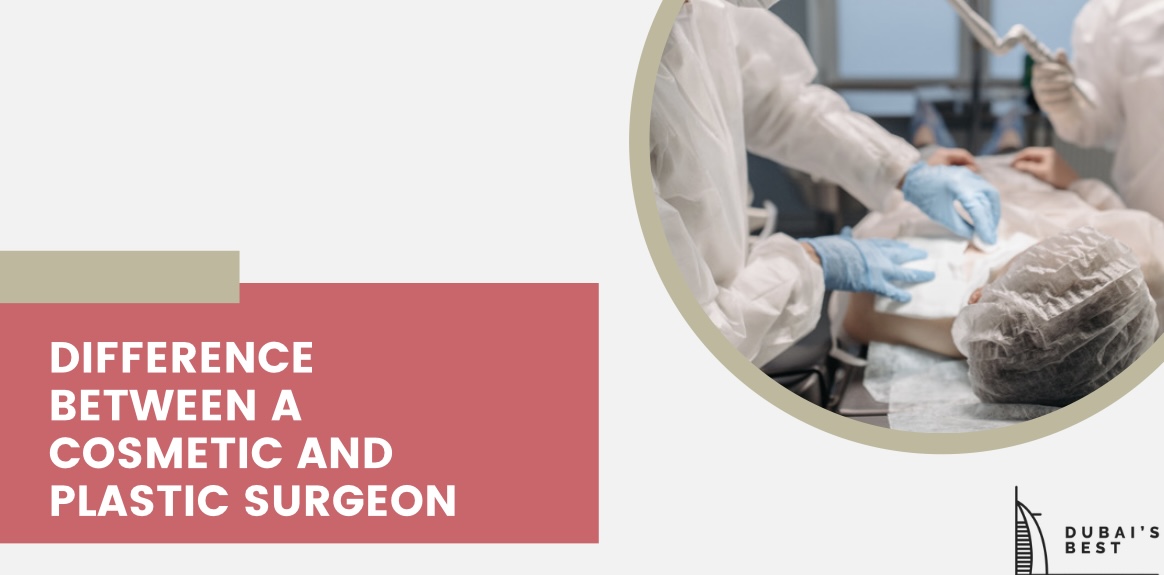Difference between a Cosmetic and Plastic Surgeon
The line between a cosmetic and plastic surgeon is often blurred. After all, they work in a similar field.
The key to understanding the difference between a cosmetic surgeon and a plastic surgeon is knowing that cosmetic surgery is a type of plastic surgery. While cosmetic surgeons can only perform cosmetic procedures, plastic surgeons are trained to do reconstructive and cosmetic surgeries.
Plastic surgeons are trained to deal with instances of trauma, skin burns, accidents, and the like.
In the following, we’ll provide a guide on the difference between the two fields.
Similarities and Differences: Cosmetic vs. Plastic Surgeon
When it comes down to it, plastic surgeons can do both cosmetic and reconstructive surgeries. Whether it’s a congenital disability, skin burn, or something elective like Coolsculpting, a plastic surgeon has the training and expertise for both surgeries.
On the other hand, a cosmetic surgeon doesn’t need to be board-certified, and any doctor in any specialty may call themselves a cosmetic surgeon. A plastic surgeon can do cosmetic treatments, but this doesn’t apply the other way around.
The average patient seeking cosmetic surgery just wants to improve their appearance by minimizing signs of aging or removing scars, for example. In these cases, there’s no medical reason to go through with surgery, and patients choose because they want to.
This is why cosmetic surgery procedures are not covered by insurance; they’re elective.
Reconstructive surgeries are done by plastic surgeons because there is a medical reason for them. This can include correcting birth defects or working on someone who has skin burns or damage following an accident.
Since these procedures are medically necessary for the patient’s health, insurance will cover them.
What is a plastic surgeon?
Board-certified plastic surgeons are experts in surgery on the skin (dermatology) and underlying tissues (plastic), including blood vessels and nerves. They have received special training and certification that qualify them to perform surgery on these body areas.
Plastic surgery is indeed a competitive industry. It can take more than a decade to complete the training required for this profession.
After earning a medical doctorate or doctor of osteopathic medicine from a qualified school, aspiring plastic surgeons will spend three to seven years in general surgery residencies.
Those who wish to pursue additional education in plastic surgery may enter into a one to two-year fellowship program after their general surgery residency and their plastic surgery residency.
This fellowship will allow them to gain further specialization and expertise in a particular area of plastic surgery, such as breast reconstruction, grafts and burns, craniofacial reconstruction, and microsurgery.
What is a cosmetic surgeon?
Many people think that being a cosmetic surgeon means being a board-certified professional. In reality, this isn’t the case.
A cosmetic surgeon doesn’t have to be board-certified to be considered one. Instead, they specialize in treatments and procedures to enhance a person’s physical appearance, such as breast augmentation, facelifts, and lip fillers.
A cosmetic surgeon may also have come from another medical specialty such as dermatology. Unlike a plastic surgeon, a cosmetic surgeon can only do cosmetic procedures and is not fit to do reconstructive surgeries.
When it comes to choosing the right surgeon for you, it’s a matter of the procedure, results, and expertise you want. For instance, having recently gone through a head trauma means you need the help of a plastic surgeon, aside from a neurologist.
A plastic surgeon will help lessen any evident trauma and know how to use skin grafts when needed. However, if the procedure you want is elective, such as tummy tuck or rhinoplasty, a cosmetic surgeon will suffice.
You may also opt for a certified plastic surgeon with expertise in cosmetics if you feel it’s best suited for you. Don’t forget to bring your health insurance with you to your appointment, especially if you’ve decided to opt for a plastic surgeon.

